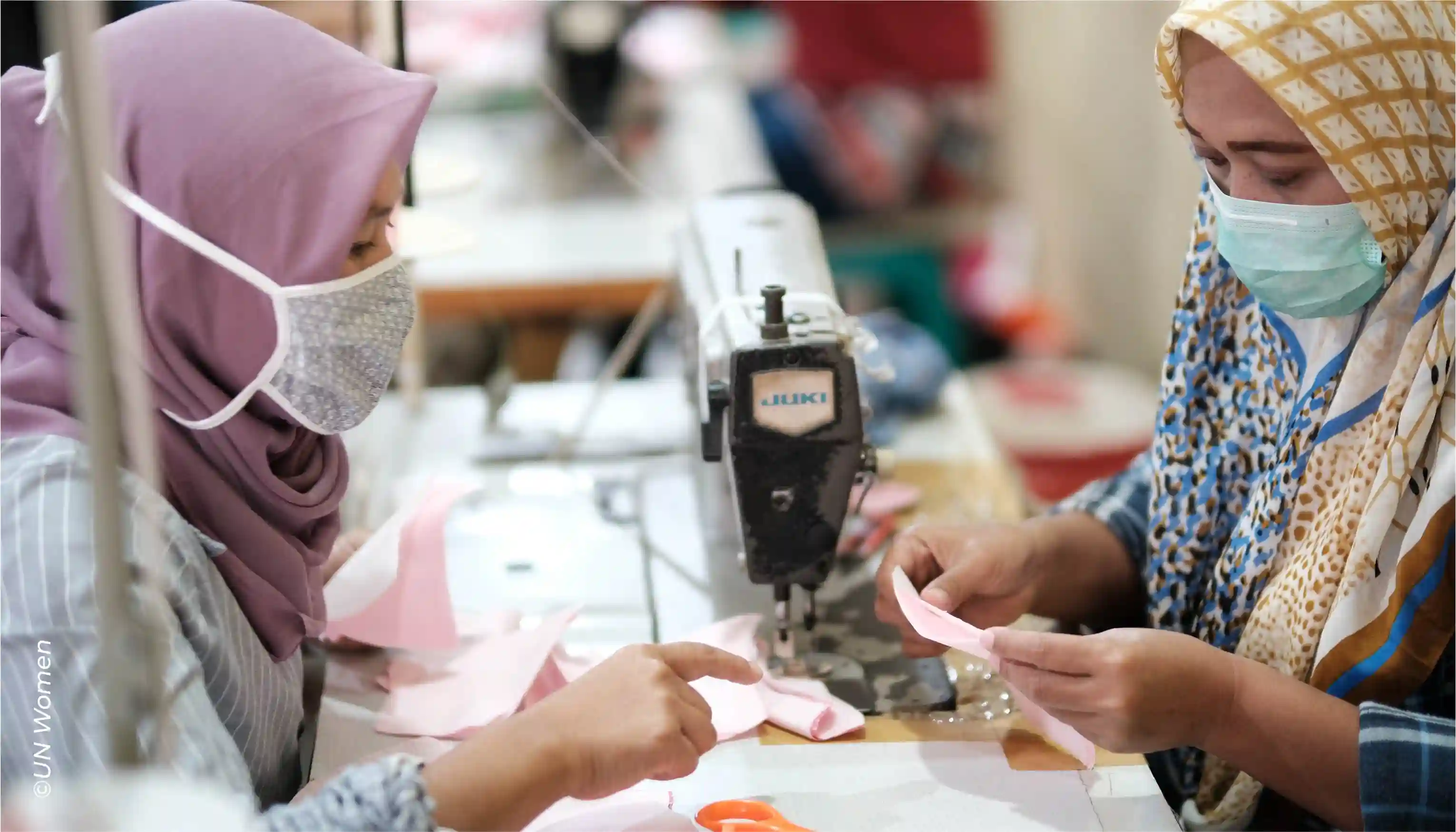United Nations In Indonesia
Country Results Report 2021
Building Gender Equal, Child-Friendly Workplaces and Protecting Workers’ Rights


 Indonesia has taken great strides towards building a more gender equal society over the past decade, including achieving gender parity in educational enrolment in 2019. Yet a stark gender gap remains, including in the workplace where Indonesian women earn 23% less than men, and women’s rate of participation in the labour force has stagnated in recent years.
Indonesia has taken great strides towards building a more gender equal society over the past decade, including achieving gender parity in educational enrolment in 2019. Yet a stark gender gap remains, including in the workplace where Indonesian women earn 23% less than men, and women’s rate of participation in the labour force has stagnated in recent years.
In 2021, the UN carried out a series of activities to support government and private sector efforts to build a more gender-equal business environment. For example, at least 150 companies across multiple sectors took part in a capacity-building virtual workshop on how to translate their support of the UN’s Women’s Empowerment Principles (WEPs) into company policies and operations. The UN also provided direct online training in digital marketing and business coalition-building to current or prospective women entrepreneurs at 25 companies, with a view to making their businesses more competitive and influencing business coalitions to commit to building gender-responsive workplaces.
On policy, the UN also helped the government develop several national policies to support gender equality in business, namely national guidelines for gender- responsive business, national guidelines for gender reporting for the private sector, and national guidelines for the prevention of sexual harassment and violence at work, based on ILO’s Convention 190. The UN also trained dozens of representatives from private
companies, state-owned enterprises, and government institutions, as “G20 Empower Advocates,” to influence G20 policy recommendations so that they take gender equality and women’s empowerment into account.
Trade unions play an essential role in protecting worker welfare, but many contend with operating constraints, including political pressure. In 2021, the UN helped build the capacity of 130 trade unions across the palm oil sector to effectively advocate for their members’ rights, including the right to freedom of association and to collective bargaining. This initiative builds on ongoing work to improve workers’ rights in Indonesia’s palm oil sector and strengthen the capacity of enterprises to implement national labour laws. By June 2021, 154 collective agreements were being negotiated and one collective bargaining agreement had been signed.
A related UN project, called Better Work Indonesia, encourages garment and footwear trade unions and employers to enter into bi-partite agreements to ensure business sustainability and protect workers from the negative impacts of COVID-19. Through 2021, the Better Work Indonesia project supported factories by monitoring COVID-19 workplace outbreaks and factories’ situation during public mass restrictions on movement, as well as factories’ progress on vaccinations. Better Work Indonesia also helped build the capacity of one major trade union networks on gender, collective bargaining agreements, data collection, and processing; helped another host a women’s conference; and helped a third organise vaccination campaigns at its factories.
Finally, in 2021, the UN-authored a joint commitment and action plan that outlines key policy areas social partners would like the Government and international brands sourcing from Indonesia to advance in response to the COVID-19 crisis. In 2021, the UN collaborated with several international buyer-partners to build the capacity of their supplies, including a project on inclusion with H&M, a project with Ralph Lauren on improving an employee grievance mechanism, and a project with Target USA on the implementation of a new labour law.